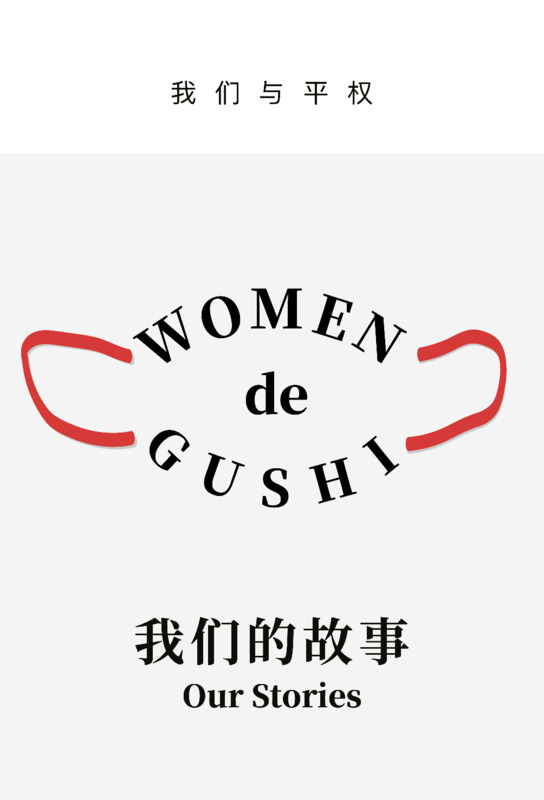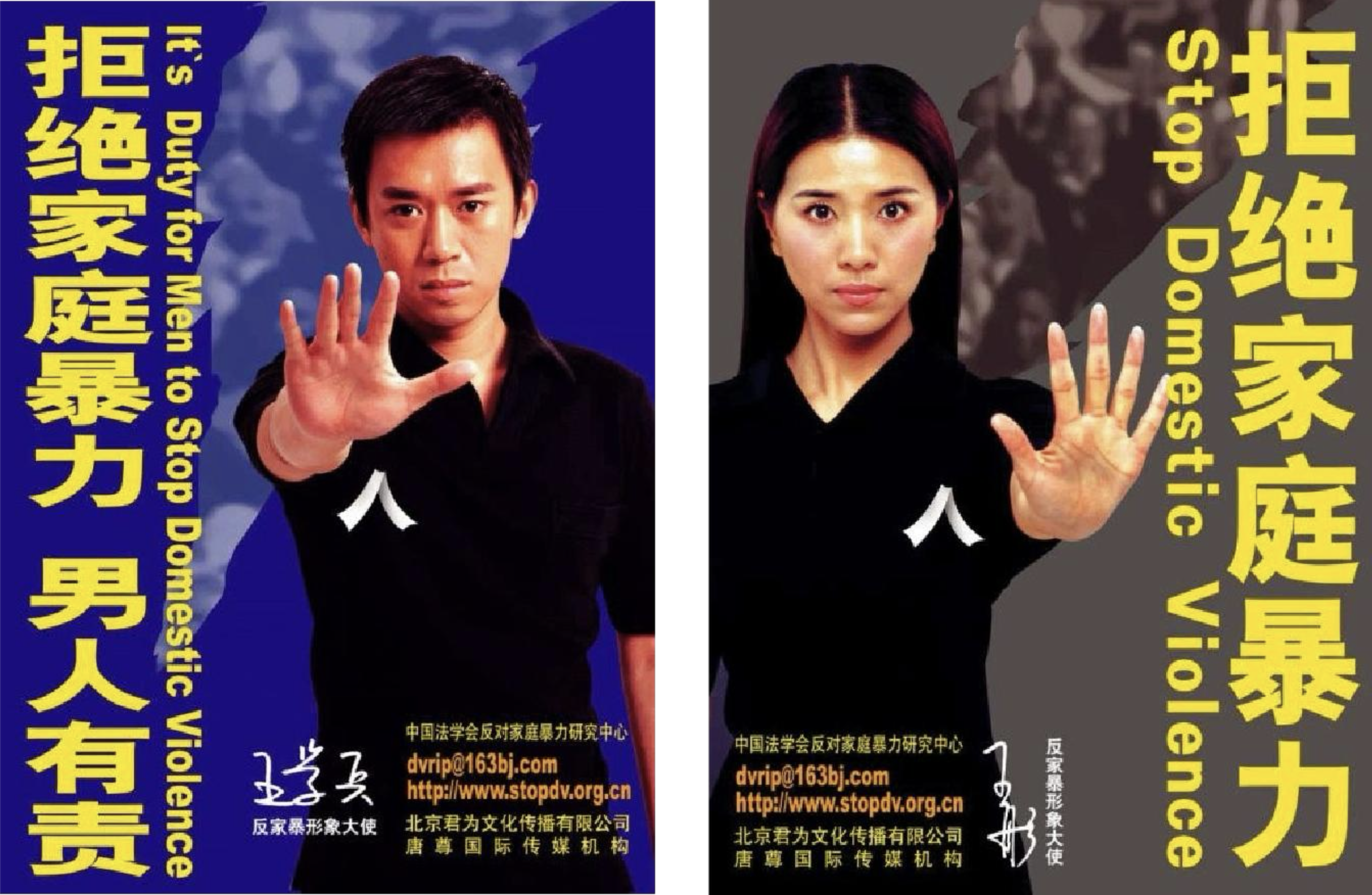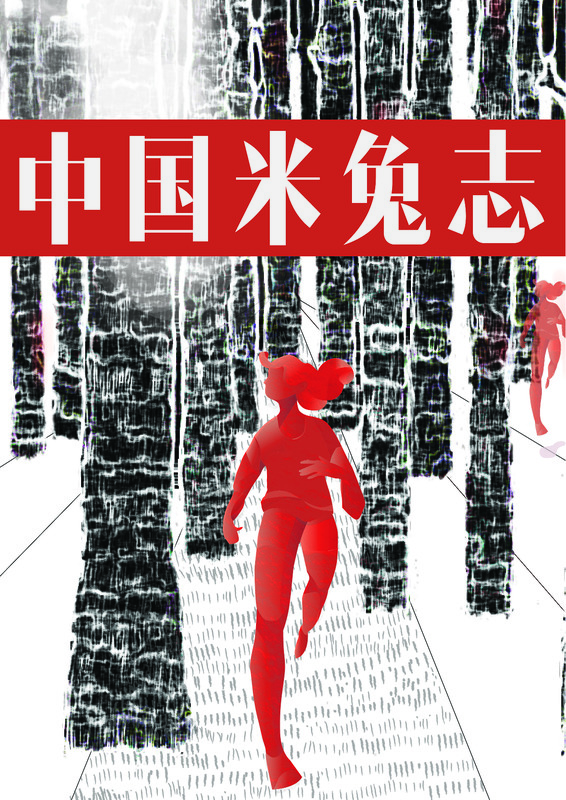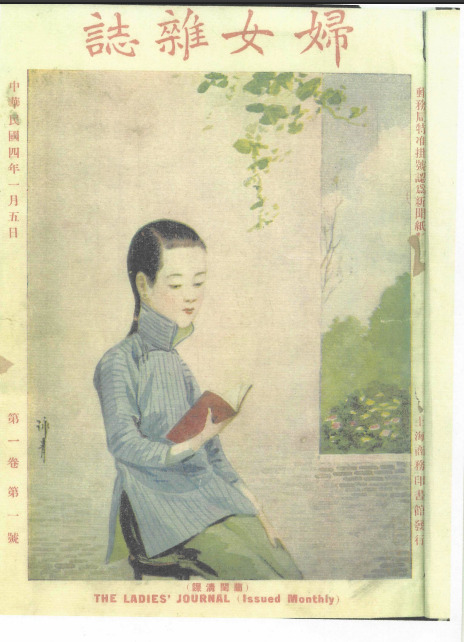Explore the collection
Showing 16 items in the collection
16 items
展览
Above Ground: China's Young Feminist Activists and Forty Moments of Transformation (English)
In March 2015, the arrest and detention of five activists in China brought international attention to the feminist movement in that country, which had already been battling gender discrimination, sexual harassment, violence against women, and homophobia for many years. While the West has only recently turned its attention to the “Feminist Five” and their fellow activists, China has a long and deep history of feminist thought and action. This exhibit seeks to make visible the work of recent feminist activists in China, to share their work with a broader audience, and to spark interest in the history and present of feminist activists, advocates, and scholars in China.
This digital exhibit is a faithful representation of a physical exhibit of the same name, which was hosted by the University of Michigan’s Institute for Research on Women and Gender from January through June 2016.
The exhibit (English) consists of 40 images depicting street actions and online campaigns initiated by young feminist activists, raising awareness and demanding government actions around issues of domestic violence, sexual harassment, education and employment equality, rights of sexual minorities and marginalized groups , and so on.
At the opening of the physical exhibit on January 26, 2016, Lü Pin, the curator of the exhibit and a long time feminist activist and researcher, remarked on the creative and subversive strategies of the young feminist activists:
“That’s why this was a story about visibility from the very beginning. First of all, they wanted people to have to notice this issue. Second, they wanted people to have to notice this group of people. ‘Noticing the issue’ was not just about making the issue of women’s rights become well-known, more importantly, it meant that the issue had to be accepted as a public issue that society would acknowledge as something that was very important. This was not something for women, or something private. Next, as we all considered this to be an important matter, the government had to respond. Thus, in this process, communication or media was very crucial, because it could amplify the power of the unknown.”
Using materials from the physical exhibit, this digital exhibit was created by librarians from University of Michigan Liangyu Fu (Chinese Studies) and Meredith Kahn (Women’s Studies), who created additional descriptive information for the images, as well as a bibliography of relevant sources.
Go to Exhibit: https://apps.lib.umich.edu/online-exhibits/exhibits/show/aboveground.
Book
Our Stories: Women in COVID-19 in China
This is the fourth issue of the “Our Stories” series published by WeChat public account “We and Equality,”, a compilation of 20 oral narratives from Chinese people who lived through the COVID-19 pandemic firsthand, and a personal reflection by the author of this issue, Qiao Yilin. The editors hope to “document the history of ordinary people, to combat the forgetting that should never have happened, and to present the real experiences, feelings, and voices of all of us–to help us remember what has happened to us.”
The interviewees in this volume are diverse, including those of different ages, educational background, ethnicities, physical and mental status, sexual orientations,marital status, and mobility. They shared their own memories of the pandemic, including facing threats to their survival due to food shortage, not being able to take anti-depression medication due to the lockdown, international students having a hard time returning to China, people with hearing impairments facing various inconveniences, and the discrimination faced by those who had recovered from COVID-19Although primarily focusing on experiences and feelings during the pandemic, many interviewees shared additional personal stories that provided useful background information for readers to understand their situation during the pandemic.
In addition to these personal narratives, “We and Equality” also published a 44-question “Women's Mental Health Questionnaire” on WeChat, asking about respondents’ experience during the pandemic, including their sense of belonging, care/housework commitments, sleep quality, emotional and mental status, feeling about quarantine, lockdown, illness or death of loved ones, and attitudes towards the government’s COVID-19 policies. The questionnaire received a total of 453 valid responses. Based on the responses, “We and Equality” has compiled a bilingual data analysis report.
”We and Equality" is a grass root project started in November 2016. Through the WeChat public account, they publish articles weekly to raise awareness and share knowledge on gender-related issues in China. They also organize in-person activities bi-weekly where people gather for in-depth discussion, and foster a community to promote gender equality.
Article
The Vagina Monologues' Journey in Mainland China
This article comprehensively documents the journey of the play <i>The Vagina Monologues</i> in Mainland China, including its many performances nationwide, as well as screenings of the play and events based on the play.
The author, Rong Weiyi, is an associate professor at the People’s Public Security University of China and an expert in gender studies, serving as a member of the China Women’s Studies Association, a member of the China Marriage and Family Studies Association, and a special researcher for the China Police Association.
Book
China on the Edge: The Crisis of Ecology and Development
Published in China in 1989, this book caused a sensation, reportedly selling as many as 300,000 copies. Described as the first "descriptive study" of the reality of China. In order to raise national awareness of the need for environmental protection, it examines the agricultural, environmental, and resource problems that China was likely to encounter in the course of modernization and predicts that the future would likely be even worse. The book was banned immediately after publication.
Article
Oral Interviews with Global Feminists
As one of China's foremost feminist activists and thinkers, Ai was interviewed by the Global Feminisms Project at the University of Michigan. In this interview, Ai talks about her upbringing as well as about the current state of feminism in China and its outlook.
Book
Zhu Xueqin Anthology
A collection of essays by Zhu Xueqin, a Chinese liberal intellectual. He has faced and criticizes various problems in China from a liberal point of view. Most of Zhu Xueqin's books were later banned.
Book
Major Feminist Events in China 2020-2023
This is a record and index of major feminist events in China between 2020 and 2023. The document consists of more than 2,000 pages, in which 122 topics/events related to feminism have been curated. The document is divided into five chapters: “Feminism in the Public Eye ”, “Feminism in Individual Cases”, “Feminism in the Law”, “Feminist Activism,” and “Three Special Years - Feminism amid COVID-19”.
Each event entry is divided into two parts: event summary and related articles The first part aims to provide a complete and objective overview of the event, using first-hand materials when possible; the second part collects media reports and commentaries on the event published through public media outlets and social media platforms.
This document covers a wide range of topics/events, including but not limited to commercial surrogacy, gender discrimination in higher education, China’s population policy and the reproductive rights of women, misogynistic culture in the media, the progress and challenges of the #Metoo movement, legal analysis of law and policies concerning feminist issues, and feminist activism.
The editorial group introduced their intention as follows in the document’s introduction:
“This document, though imperfect, is an attempt to contribute to the writing of the history of Chinese feminism - history is the road we are walking at the moment, and we've come a long way, still searching for answers hidden in the thick fog. ”
“We hope that this document will not only serve as a tool, but also provide the reader with wisdom and strength.”
图书
#MeToo in China Archives 2018.1-2019.7
On New Year's Day 2018, Beihang University graduate Luo Xixi took the lead in breaking China's silence on the issue of sexual harassment when she publicly reported on social media that Beihang professor Chen Xiaowu had sexually harassed her. This was the first major event in China’s #Metoo movement, which has since spread from colleges and universities to other fields. #Metoo provoked an unprecedented discussion in China, and the issues of feminism and sexual harassment attracted a rare and widespread attention, with a variety of complaints, comments, studies, and advocacy articles springing up all over the internet.
<i>#MeToo in China Archives 2018.1-2019.7</i> is a compilation of sexual harassment-related articles written between January 2018 and July 2019. This archive is massive, totaling more than 2,500 pages, and is divided into three main volumes: “#Metoo in Higher Education”, “#Metoo in other fields”, and “#Metoo discussions’. Volume I and Volume II consist of individual #Metoo cases, arranged in chronological order. Articles in volume 3 can be broadly categorized into general reviews, investigative reports, personal stories, advocacy and activism, tools and resources,etc. During the #Metoo movement, many liberal public intellectuals questioned the movement, likening it to big-character posters during the Hundred Flowers campaign, and arguing that it might lead to the proliferation of wrongful convictions. It triggered heated debates, and this archive also contains a number of related articles.
The process of compiling this archive itself became an act of resistance, given the severe repression on freedom of expression and social movements. The editorial team faced tremendous challenges in collecting articles that had been deleted or published as images to bypass online censorship. It spent a great deal of time and personnel piecing together scraps of information and transcribing words in images. Reading traumatic personal stories - including those about the hardships in seeking remedies - caused psychological trauma for the editors themselves.
Nevertheless, #Metoo has also a process of collective healing, in which women with shared experiences saw each other, realized the structural problems behind sexual violence, and gained the strength to move on and push for change. Finally, during the compilation process, the editorial team also benefited from archiving efforts made by other websites and individuals, demonstrating that the rescue and preservation of people’s history is a collective and collaborative task.
This archive is published on https://chinesefeminism.org/.
Article
A Brief History of Young Feminists Activism in China
Since 2012, a group known as the “Young Feminist Activists”, has emerged in China. They often use performance art in public to promote gender equality issues; they question injustice, and engage in policy advocacy to advance women’s rights. They make use of social media and the internet to provoke public debate, build public support, and mount pressure for social and self-transformation in China. Their direct actions created new space for activism in China's tightening political environment.
This article provides a detailed overview of the actions initiated by the young feminist activists between 2012 and 2019. These actions cover a wide range of gender issues, including but not limited to sexual assault/harassment, gender-based violence, gender equality in employment and schooling, gender stigma and stereotyping, marriage autonomy, and lesbian rights and interests. These actions have not only raised the public's awareness of gender equality, but also promoted the introduction of gender equality legislation and policies.
A turning point came In 2015 when five young feminist activists were arrested and detained for 37 days for planning to hold an anti-sexual harassment campaign on March 8, Interantional Women's Day. Since then, young feminist activists have almost completely lost their space on the streets. However, as can be seen from this article, feminist activism did not disappear, but sustained and continued in a variety of ways, including the creative use of social media and leveraging transnational solidarity and action.
In the article, the author says, “Young feminist activists should not be forgotten by the public, especially in an environment where censorship has intensified in the past years, civil society has nearly collapsed, and it is extremely difficult for people to speak out. While there is a seeming increase in discussion of feminism in domestic social media, it has been severely depoliticized, feminist activists are marginalized and stigmatized, and their voices silenced. Therefore, it is particularly important to tell the stories of young feminist activists and popularize knowledge about the domestic feminist movement. It is important to let more people see the spirit and achievements of the new generation of Chinese feminists, and understand the important gender issues they have promoted.”
The article is accompanied by numerous images, videos and links to other resources for further reading.
电影及视频
Global Feminisms Project: China Interviews
The Global Feminisms Project, hosted by the University of Michigan, archives oral history interviews with individuals who identify themselves as working on behalf of issues related to women and gender in different national contexts. The goal of the project is to encourage teachers and researchers to study issues related to the many forms of feminist or women’s movement activism in general, as well as activism on behalf of particular issues.
Beyond that, this project is also a useful resource for general readers who are interested in learning more about the history of feminist movements around the world. Interviewees describe their lives, their views, and their activism in considerable detail. The project offers the unedited interviews as primary sources for understanding the history of activism in all its complexity and variation.
The project covers 14 countries, including China, with each having a dedicated site. According to introductions by Wang Zheng, then a professor at University of Michigan’s Institute for Research on Women and Gender, the China Interviews took place in two phases.
In the first, the interviews illustrate the multi-dimensional development of feminist practices in China’s transformation from a socialist state economy to a capitalist market economy from the mid-1980s, when spontaneous women’s activism emerged. Situating such development in the context of both global capitalism and global feminisms, especially in the context of the Fourth UN Conference on Women (FWCW) when Chinese feminists came into direct contact with global feminisms, the interviews, conducted in the early 2000s, explore the cultural, social, and political meanings of Chinese feminist practices. They illustrate how official, non-official, domestic, and overseas Chinese women activists expressed diverse visions of gender equality, even engaging in struggles over the very word “gender.”
These interviews reflect the scope and complexity of the contemporary Chinese women’s movement. Feminist activists include women leaders from diverse groups, such as Ge Youli, who was involved as a young leader in various urban based organizational activities funded by international donors to disseminate feminist ideas; Zhang Lixi, Vice President of the Chinese Women’s College that affiliates with the All-China Women’s Federation, who has promoted women’s studies in her college; Ai Xiaoming, prominent feminist scholar and activist; and Gao Xiaoxian, who holds an official position in the Shaanxi Women’s Federation while creating several women’s organizations outside the official system to engage in legal services for women, anti-domestic violence movements, and issues of gender and development.
In the second phase, five interviews of a younger cohort of Chinese feminists record the rapidly contracted public space for NGO activism in China since the second decade following the FWCW and severe surveillance by the state over feminist activities initiated by autonomous feminist groups and individuals. They also provide powerful testimonies to tremendous creativity, perseverance and courage demonstrated by young feminists who in many cases are making a precarious living in the private sector without much resource for their feminist activism.
<a href=”https://sites.lsa.umich.edu/globalfeminisms/interviews/china/”>The China site</a> provides videos and transcripts of the interviews (both in Chinese and English). In addition to the interviews, the archive also provides maps, statistics, a timeline, podcasts and other resources to assist understanding of the context in which the activists carried out their work.
Periodicals
The Women's Voice
The Women's Voice (Nüsheng), first issued in Shanghai in October 1932, was a bimonthly magazine published by the Women's Voice Society. It was co-founded by then journalist Wang Yiwei and Liu-Wang Liming, then president of the China Woman’s Christian Temperance Union, with part of the funding coming from the Union, and part being raised by Wang through advertisements and sales.
In the first issue of the journal, the magazine’s mission was described as “to seek liberation for the nation and happiness for all women.” The publication included short commentaries on political affairs, essays, literary works, and readers’ letters. Its content was wide-ranging, including many theoretical articles on the women's movement, discussions on women's participation in politics, marriage freedom, and professional development, reports on the situation of female workers, as well as women's lives in other parts of the world. Although <i>The Women's Voice</i> did not have any political affiliations, it identified with socialism and supported the Chinese Communist Party, believing that national liberation was a prerequisite for women's liberation.
Due to differences of opinion between editor-in-chief Wang Yiwei and president Liu-Wang Liming, the magazine declared its independence and was no longer funded by the China Woman’s Christian Temperance Union in 1934. Due to its left-leaning stance and its sharp criticism of Kuomintang policies, the magazine was subjected to severe censorship and suppression by the KMT authorities and was forced to cease publication in 1935.
After the victory over Japan in August 1945, <i>The Women's Voice</i> resumed publication in November and turned into a monthly magazine. In addition to issuing magazines, the editorial board also held several symposiums, such as “Women's Participation in Politics”, “Women's Education”, and “The Way Forward for Female Intellectuals” The magazine started to collaborate with Liu-Wang Liming again and changed its editorial policy to publish only works by women authors. According to Wang Yiwei, in order to maintain the magazine’s independence, they did not receive any political funding, and that most of its funding came from fundraising events and charity sales. Due to continued harassment by the Kuomintang, Liu-Wang Liming was forced to flee to Hong Kong. Eventually, under both political and financial pressure, <i>The Women's Voice</i> ceased publication in 1947.
<i>The Women's Voice</i> magazine is hosted by the <b><a href="https://mhdb.mh.sinica.edu.tw/magazine/web/index.php"> Modern Women Journal Database</a></b>, operated by the Institute of Modern History of Academia Sinica in Taiwan, and is free for users to register and access. The site contains all of the 1932-1935 issues, but most issues after 1945 were lost, thus only three issues are included. Thanks to the Institute of Modern History, Academia Sinica, for authorizing the CUA to repost.
For more information about the magazine, please see: <a href="http://sites.lsa.umich.edu/wangzheng/wp-content/uploads/sites/948/2024/11/%E7%8E%8B%E4%BC%8A%E8%94%9A-%E6%88%91%E4%B8%8E%E3%80%8A%E5%A5%B3%E5%A3%B0%E3%80%8B-1987.pdf"> Wang Yiwei, “Me and the ‘Women's Voice’: A Tribute to March 8 Women's Day”</a> on the website of Wang Zheng, Professor Emeritus of Women's and Gender Studies and History at the University of Michigan.
Note: In 1942, during the war against Japan, with the financial support of the Japanese and the Wang Jingwei regime , another magazine with the name of <i>The Women's Voice</i> was published in Shanghai, imitating the style and design of the original magazine. The magazine, edited by Japanese left-wing writer and feminist Toshiko Sato (also known as Toshiko Tamura, or Zuo Junzhi in Chinese), was the only women's magazine published in the fallen area of Shanghai under Japanese control. The magazine ceased publication in 1948.
According to research by Tu Xiaohua, an associate professor at the School of Journalism at the Communication University of China, although the magazine had long been regarded as a “traitorous” magazine and a tool of Japanese political propaganda, it also served as a platform for the dissemination of left-wing ideology to a certain extent, due to Toshiko's internationalist stance and the involvement of members of underground CCP members. The magazine is also included in the Modern Women Journals Database.
Periodicals
The Ladies Journal
The Ladies Journal was founded in January 1915 by the Commercial Press Shanghai. It was a monthly magazine primarily targeting upper-class women. It ceased publication in 1932 when the Commercial Press was destroyed by Japanese bombing. The magazine was distributed in major cities in China and overseas, such as Singapore. The magazine was considered an influential forum for the dissemination of feminist discourse in modern China, given its long operation and large readership.
The magazine spanned important historical periods such as the May Fourth Movement and the National Revolutionary period, and readers can see how the political environment and social trends influenced the political stance and style of the publication.
Although it was a women's magazine, the chief editors and the authors of most of the articles were men. According to Wang Zheng, Professor Emeritus of Women's and Gender Studies and History at the University of Michigan, the early articles of The Ladies Journal were more conservative. Although it advocated for women’s education, the goal was to train women to be good wives and mothers. Later, under the influence of New Culture Movement and the May Fourth Student Movement, the magazine was forced to reform itself and began to publish debates on women's emancipation as well as to call for more women's contributions, spread liberal feminist ideas, and support women's movements across the country.
1923 saw the beginning of the National Revolutionary period, and the Chinese Communist Party’s nationalist-Marxist discourse on women’s emancipation started to challenge liberal feminism, and the magazine's influence waned. In September 1925, the magazine ceased to be a cutting edge feminist publication after it changed its chief editor again and shifted its focus to ideas more easily accepted by conservative-minded readers,such as women's artistic tastes.
Although the <i>The Ladies Journal</i> was run by men, and some articles displayed contempt for and discrimination against women, it pointed out and discussed many issues that hindered women's social progress, such as lack of education, employment, economic independence, marriage freedom, sexual freedom, family reform, emancipation of slave girls, abolition of the child bride system, abolition of prostitution, and contraceptive birth control. It was also open to many different ideas and views, all of which were published. It is a valuable historical source for the study of women's studies and modern Chinese history.
Yujiro Murata, a professor at the University of Tokyo, founded the The Ladies Journal Research Society in 2000, along with a number of other colleagues interested in women's history from Japan, Taiwan, China, and Korea. The two main goals of the Society are to produce a general catalog of all seventeen volumes of the Magazine and to bring together scholars from all over the world to conduct studies based on the magazine. With the assistance of the Institute of Modern History of Academia Sinica in Taiwan, the magazine was made into an online repository, which is stored on the Institute’s “Modern History Databases” website, and can be accessed by the public.
Link to the database: https://mhdb.mh.sinica.edu.tw/fnzz/index.php. Thanks to the Institute of Modern History, Academia Sinica, for authorizing the CUA to repost.
图书
Political China: Towards an Era of Choices for a New System
This book is a collection of writings from the late 1990s regarding political system reform in China. The editors state in the afterword: “This book has collected nearly all, if not all, of the articles discussing political system reform in recent years. From this, we can see the research achievements and level of people’s understanding of political system reform in recent years.”
The articles in the book cover a wide range of topics, from political system reform to democracy, the rule of law, constitutional government, freedom, rights, and economics. Although the articles in the book were all published independently before, Political China was soon banned by the authorities after its publication, and the Today China Publishing House soon shut down under official pressure.
Book
On Freedom of Speech
“On Freedom of Speech” is a treatise by Hu Ping. It was first published in 1979. A revised version was published in 1980, when Hu ran for local elections at Peking University. The treatise was later published in Hong Kong in 1981 and again in a Chinese journal in 1986. Multiple publishing houses in China made plans to distribute the treatise in book form, but China’s anti-liberalization campaign prevented the books from publishing.
“On Freedom of Speech” explains the significance of freedom of speech, refutes misunderstandings and misinterpretations of freedom of speech, and proposes ways to achieve freedom of speech in China.
This document, provided by the author, also includes the content of the symposium held after the publication of “On Freedom of Speech” in 1986, as well as the preface written by the author in 2009 for the Japanese translation of this treatise.
Database
Modern Women Journals Database
This database is part of the “Modern History Databases,” operated by the Institute of Modern History of Academia Sinica in Taiwan. The "Women and Gender History Research Group" of the Institute endeavors to collect, digitize and categorize related books and journals from libraries worldwide, and established the Modern Women Journals Database, which consists of 214 journals and 110,000 individual items. The database has been made available for public use since 2015.
In 1919 and the years that followed, women’s movement in China was on the rise, and as a result, many women's magazines appeared, a lot of which were run by women. Most of the journals collected in this repository were published between 1907-1949, with some published after 1949; there are comprehensive publications, as well as those focusing particularly on women's movements, family, health, employment, etc.; nearly a quarter of the publications were published in Shanghai, followed by Beijing, Guangzhou, and Nanjing. As can be seen from the Database, most of these journals have a relatively short duration, ranging from one to five years. Through this database, readers can gain a more comprehensive understanding of the history of women and women’s movements in modern China.
In addition to browsing journals and searching the database, users can also conduct author research and journal analysis. Under the author research section, users can read author biographies, as well as see the number of articles written by a particular author, and a map displaying their family and social relations. Under the journal research section, users can generate maps by keywords, eras, and article categories, which can provide more multi-dimensional information about a specific era or topic.
Link to the database:https://mhdb.mh.sinica.edu.tw/magazine/web/acwp_index.php. Thanks to the Institute of Modern History, Academia Sinica, for authorizing the CUA to repost.
Film and Video
The Vagina Monologues (Performance at Sun Yat-sen University)
<i>The Vagina Monologues</i> is a pioneering feminist drama created by the American playwright Eva Ensler. In 2003, teachers and students at the Gender Education Forum of Sun Yat-sen University in China adapted the play and added artistic interpretations of Chinese women's gender experience. The adapted play had its first performance at the Guangdong Provincial Art Museum on December 7, 2003. This video is a recording of that performance.















